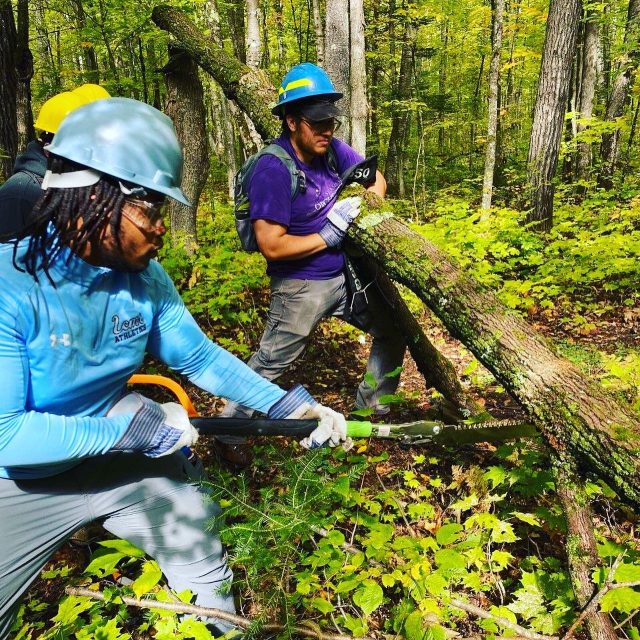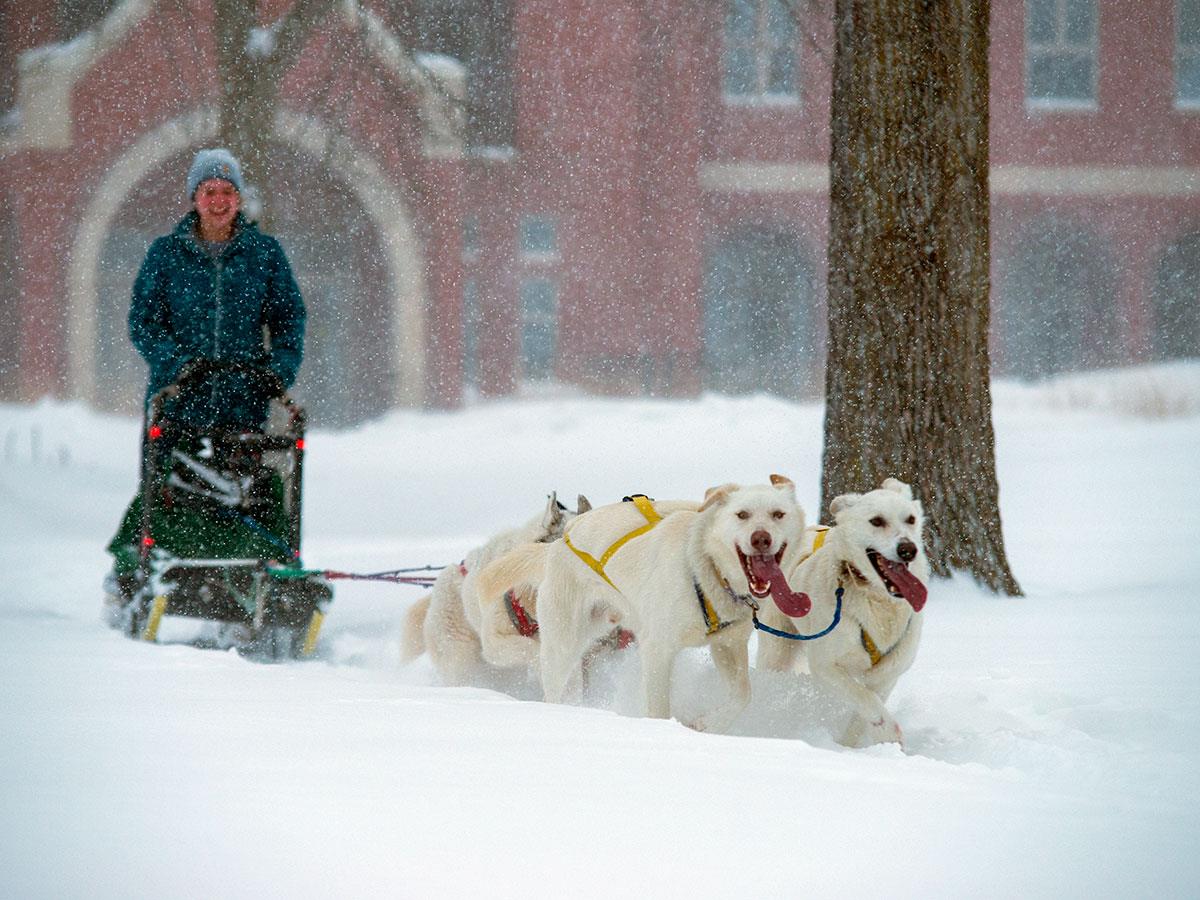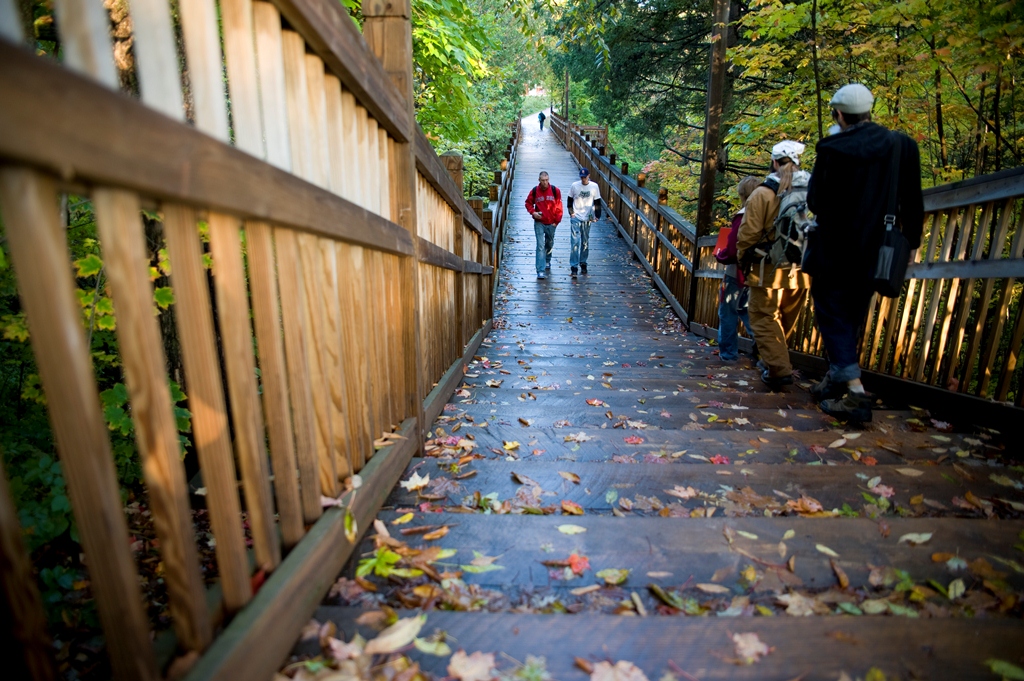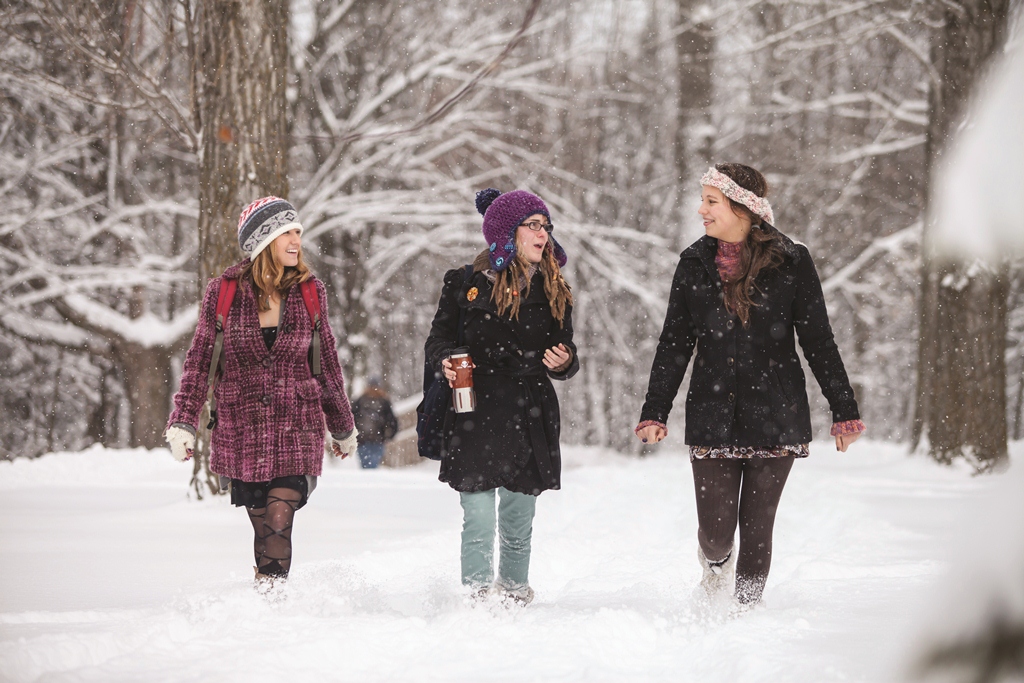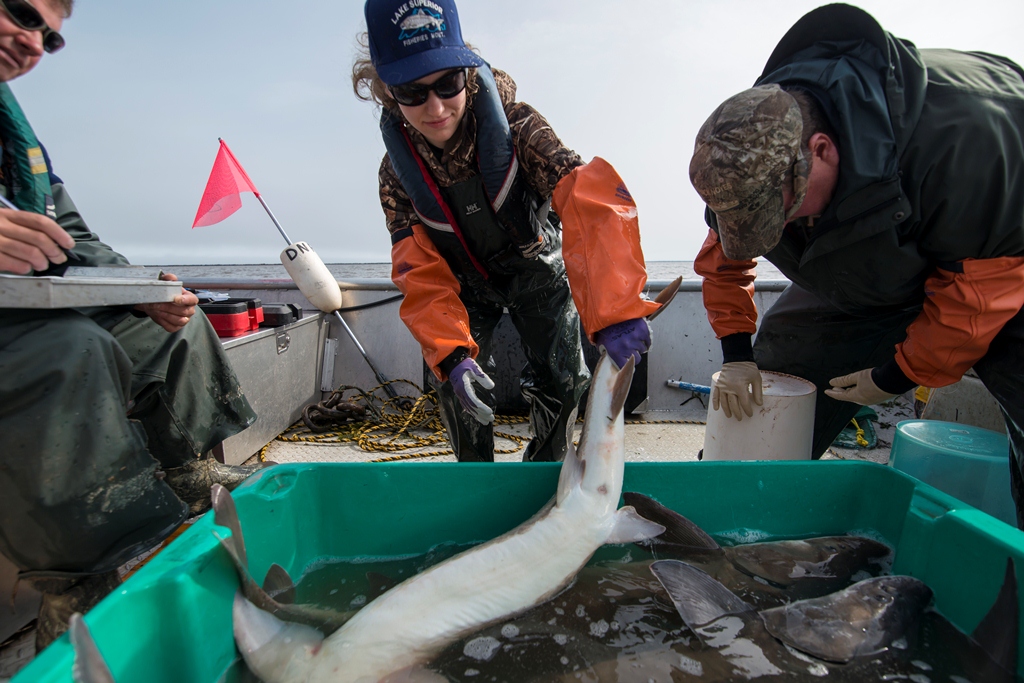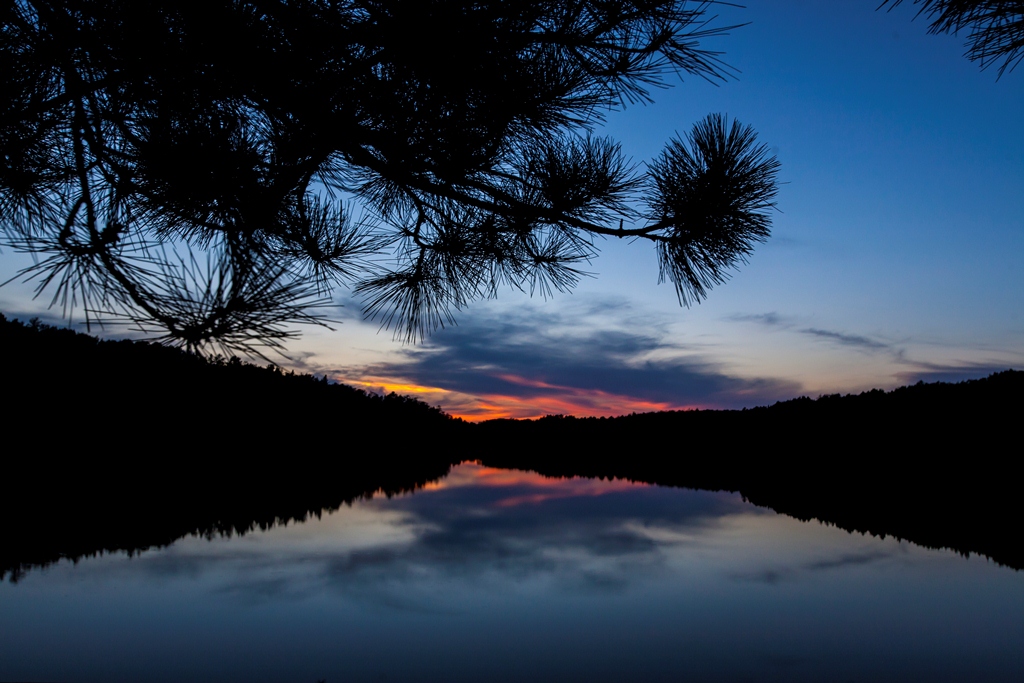
Northland College
Northland College is an environmental liberal arts college just blocks from Lake Superior, the largest freshwater lake in the world. Located in historic Ashland, Wisconsin, Northland’s location is unparalleled—surrounded by more than a million and a half acres of the Chequamegon-Nicolet National Forest and just a short drive to the Apostle Islands National Lakeshore and a national wildlife refuge. Northland takes its location seriously, offering many place-based and field courses in the region, and affording ample internship opportunities with numerous state and federal agencies and other partners in the area.
Northland made history in 1974 as the first college in the country to fully integrate an environmental focus with a liberal arts curriculum. Today, sustainability and the environment are interwoven with all parts of a Northland education, from general education through the completion of one of the College’s forty-plus academic programs. Students also have the option to take a specialized general education pathway focusing on sustainable food systems or the Lake Superior watershed.
Northland’s small size—fewer than five hundred and fifty students—fosters a powerful learning environment. Students form great bonds with faculty who know them by name and know their unique interests and aspirations. Many students participate in undergraduate research, with dozens of them sharing publication credit with faculty members.
The College is home to the Mary Griggs Burke Center for Freshwater Innovation, which hires students to help conduct research in the area. The Sigurd Olson Environmental Institute at Northland is home to LoonWatch and the Timber Wolf Alliance, two longstanding programs harnessing the power of citizen science to support conservation and education work on these important species in the north woods. Focused on food sovereignty, farming with integrity, and sustainability, the Hulings Rice Food Center combines a certified kitchen, composting, and demonstration gardens to foster regenerative food systems.
Northland College has proudly called the north woods its home and classroom since 1892. The College’s unique spirit, the strong bonds formed in its small campus community, and the many pristine beaches within a short drive or bus ride from campus draw students and alumni back year after year.
Location
Ashland, Wisconsin
Student/Faculty Ratio
10:1
MAJORS/ AREAS OF STUDY
Over forty programs including Art, Biology, Business Administration and Sustainable Business, Chemistry, Climate Change Studies, Ecological Restoration, Education, English, Fisheries and Wildlife Ecology, Forestry, Gender and Women’s Studies, Geology, Graphic Design, Humanity and Nature Studies, Native American Studies, Natural Resources, Outdoor Education, Religious Studies, Sociology and Social Justice, Sustainable Agriculture, Sustainable Community Development, Water Science, and Writing, among others.
ACADEMIC CALENDAR
A fourteen-week Fall Term and Winter Term followed by a four-week May Term. During the May Term, students take one intensive course, giving them an opportunity to dive into a field course, travel course, or another hands-on experience.
NOTABLE ACTIVITIES IN SUSTAINABILITY
- Campus gardens—provides fresh produce for the cafeteria, campus events, and a local farmers market in the summer
- ReFund—led by students to support campus sustainability initiatives
- Renewable energy including a wind turbine, solar panels, and geothermal heat
- ReUse Room—a free, on-campus thrift shop
- LEED Gold-certified buildings
- Environmental Council
Learn more at northland.edu/sustainability
SPECIAL PROGRAMS, FACILITIES & RESEARCH
- Sigurd Olson Environmental Institute
- Outdoor Pursuits, which offers dozens of trips around the north woods for students during the year
- Affordable gear rental at the Outpost and the Nordic Ski Center
- Nordic ski trail system located on campus
- Historic Forest Lodge estate in the nearby national forest
- Immersive student research program with the Mary Griggs Burke Center for Freshwater Innovation
- Hulings Rice Food Center
- Indigenous Cultures Center and Native American Museum
- Sunshine Bike Shop
- Fitness center and bouldering wall
